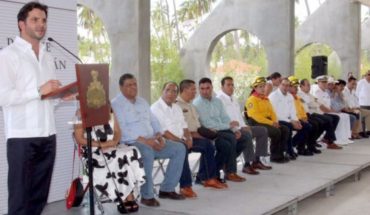
In discussions between those who aspire to be part of the next Constitutional Convention, the question of the place of the family has been mentioned quite frequently. At first glance, the answers seem to be somewhat obvious, allowing actors to be placed almost automatically in the political and ideological space.
Indeed, over the past few decades it has been above all conservative positions that have monopolized the discourse on the family. Some analyses have suggested, in fact, that here is one of the privileged lands where that articulation between conservatism and neoliberalism was forged which we have witnessed over the last few decades: while some saw in the “defense of the family” the livelihood of traditional forms of morality and authority, others invoked their strengthening as a source of solidarity and mutual support with a view to dismantling social responsibilities in charge of the State.
On the contrary, in the discourse on the left today the references to the “family” seem rather absent, or even awakening at times some degree of discomfort. The place of the family seems to characterize here rather a somewhat empty space amid the most common allusions to “individuals” and their rights, community solidarity (“communities”) or principles of political equality (“citizenship”).
It seems necessary, then, to ask: is concern for the family necessarily alien to a horizon of democratization of society as one that should encourage the left in the constituent process? Or, more generally, is it possible to read the idea of “defending the family” that is relevant in the context of a process of democratic deepening? There are at least two areas of concern here, the importance of which seems to be decisive today.
Firstly, talking about the importance of the family today requires recognizing the plurality of ways in which they manifest bonds of love or mutual care, as well as the different ways in which the exercise of parenthood assumes. If a democratic society is defined by basic respect for the values of equality and freedom, then the importance of recognizing without arbitrary discrimination different forms of “family”.
Second, those who today declare themselves defenders of the family tend to base their position on the idea of “fundamental core of society” contained in article 1 of the Constitution. In a very relevant way, from this context the place of the family is considered above all in the light (as a necessary complement) of the subsidiary nature of the State. The family is treated as well as a kind of pre-social space, oblivious to institutionality and public policies, except in cases of extreme need. Without going any further, this mode of understanding was again invoked strongly in creating the “Ministry of Social Development and Family” (one of the central projects, it was said then, of the current government: “the family is the fundamental core of society and in this sense, it is the duty of the State to protect and promote its strengthening. Therefore, the State must play a subsidiary role in supporting family members, understanding that such support operates whenever it cannot provide its members with the security and contention they require” (Presidential Message No. 078-366, July 2018).
The current crisis has highlighted the limits and problems of this “desocialized” understanding of family life. In the absence of effective social media, it has again been family networks that have had to solve the satisfaction of the most basic needs. In turn, day-to-day care for children — now completely transferred to homes — has generally been an absent topic in political decision-making. Everything that involves domestic-family life is seen as, preferably, as a concern and exclusive task of households. Even institutional discourses that (in the context of telework) promote forms of reconciliation between “family” and “work”, seem to suggest more tasks or responsibilities aimed at those who already work and care (“establish a routine”, “leave moments to be distracted”, etc.). The responsibilities of both employers and the State in making family life socially sustainable in the face of labour imperatives have thus been largely unvisitable on the public agenda.
A crucial aspect seems to be then moving towards a more robust understanding of the famdomestic life as social institutions. In rigor, both basic family structures (who counts as a “family”?) and domestic life itself, are formed and reproduced daily in an important way through the influence of laws and policies. A purely subsidiary understanding of the role of the State shows here, as in other areas, its insalvoicing limits and also how it contributes, in the end, to reproducing and invisibilizing existing social inequalities.
In this sense, together with recognizing a plurality of ways of “making a family”, thinking today of the place of the family in a democratic society also requires asking about the economic and social conditions that make family life possible and sustainable. This is, for example, what ways of organizing the economy (working times, travel and rests, recognition of care), guarantees of rights in social security, education or health, or even the very configuration of public spaces, make it possible today to democratize the conditions of enjoyment of family life? How do these institutional and end-related dimensions with the distribution of power in society (which will precisely be discussed by the constituent process) affect, finally, the resources and times that families have not only to meet their needs seen as more basic, but also (to name just an everyday example) for the cultivation of those recreational or playful aspects whose value is also indispensable in the care of children?
In short, there is some reason in those who warn that the left would perhaps do well to take the place of the family more seriously; equally true, however, is that the enjoyment of family life requires material conditions and social security. Those who today often claim to “defend the family” would then do well, for their part, to warn the latter as well. Unless, of course, the “defense of the family” is understood rather as the defense of a privilege.
The content poured into this opinion column is the sole responsibility of its author, and does not necessarily reflect The editorial line or position of El Mostrador.





